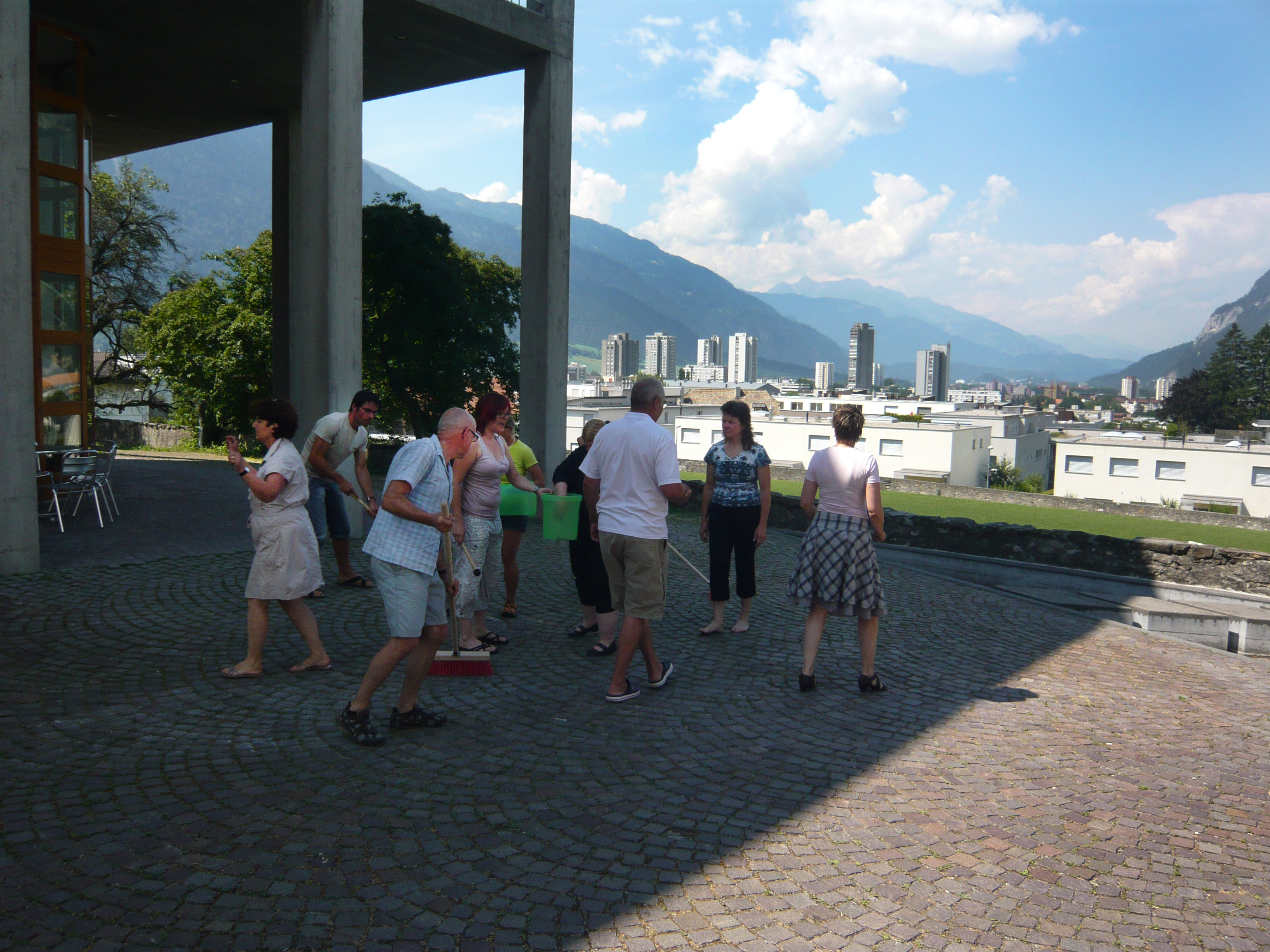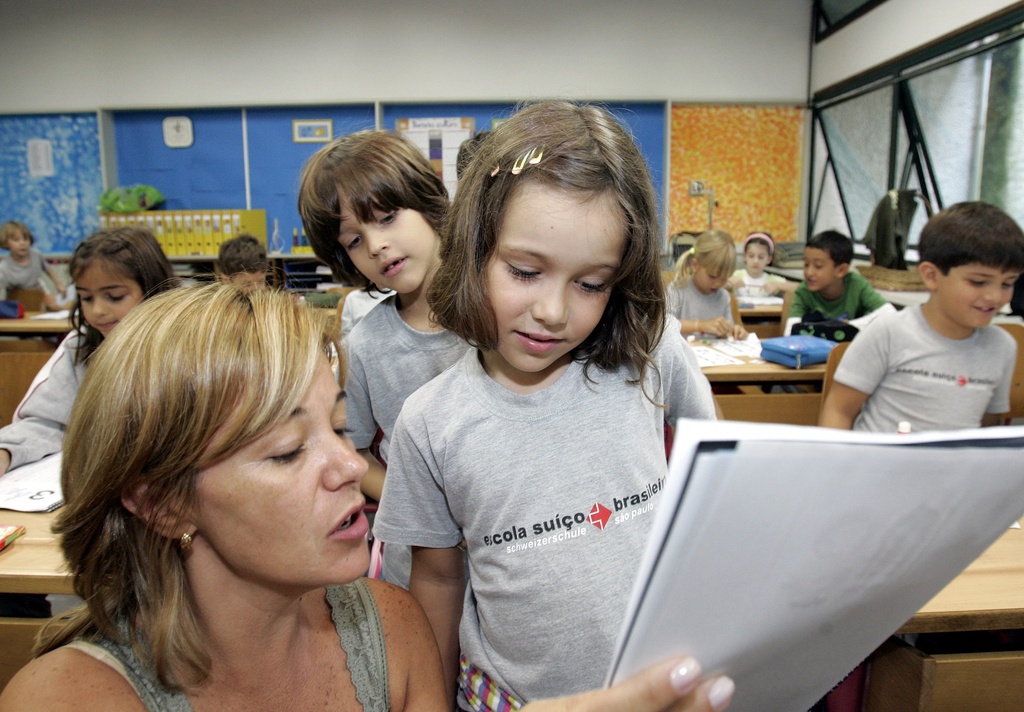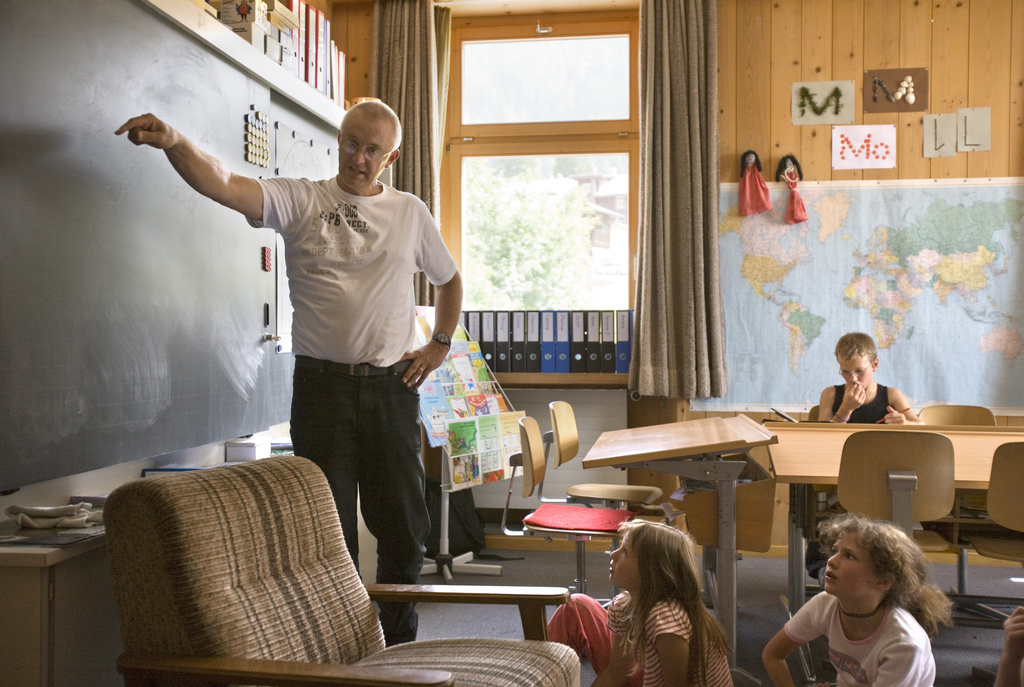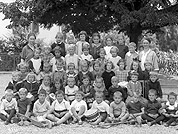Stressed teachers leave the classrooms

Difficult pupils and parents, ever-increasing duties and ongoing reforms are pushing some Swiss teachers to burnout.
Concerns have been raised in the profession about how many of them are leaving their jobs, creating a shortage.
The situation is particularly alarming for new teachers: 20 to 50 per cent of them are quitting during their first few years.
Older teachers are also increasingly throwing in the towel, according to the report on Swiss education 2010.
For Jürg Freudiger, an independent consultant for state schools in Zurich, teachers’ workload is at the heart of the problem.
“Society, school management and parents are constantly imposing new roles on teachers, which generates enormous stress,” he explained.
“This can lead to burnout which especially hits the teachers, who don’t recognise in time the psychological and physical symptoms of exhaustion.”
Having seen this many times during his 30-year career as a secondary school teacher, Freudiger decided to put his experience to good use and now offers specialised anti-burnout training.
Reducing stress
During a summer session for Swiss teachers, which took place in Chur, in eastern Switzerland, Freudiger and his wife focused on how to avoid mental exhaustion.
Teachers from all age groups were following the course, said Freudiger, “from freshly qualified ones to ones with years experience. Some of them have already been through a burnout, others have been close to having one”.
“Teachers have to learn take time out for themselves and to safeguard their mental and physical health by doing sport or going to mental training meetings,” he added.
But training cannot solve everything. “The problem must be tackled at its root,” said the consultant. “Schools should no longer be considered the only place for what parents and society no longer want to do.”
This view is shared by Reto Cadosch, a primary school teacher in charge of another course on school priorities.
“Teachers must be able to dedicate themselves fully to students’ education. Bureaucratisation of the profession, communal activities and extra training have reduced the time teachers can dedicate to what they like: teaching,” Cadosch said.
Increased workload
The men are not alone in their opinions. A survey by the German-speaking teachers’ association, published in February 2008, on around 5,200 teachers in 20 different cantons, found that teachers’ working time had increased by seven per cent compared with 1999.
The number of teaching hours had remained stable, but there were more administrative tasks and the time spent in training and interacting with parents and fellow teachers had risen.
The study also pointed out that school reforms initiated at the end of the 1990s had overloaded state school teachers.
This worsening of working conditions and the ensuing departure of teachers is reflected in the number of vacant staff positions.
In 2009 there were 3,400 vacancies in Swiss state schools which were filled by foreign teachers or students. Teacher training schools can’t train enough teachers to fill this gap.
Meanwhile, a few Swiss cantons having been trying to counter the problem by proposing special shorter teacher training for people from other professions or for primary school teachers who want to teach in secondary schools.
Prestige lost
On his course, Cadosch showed participants new techniques to help them start to enjoy teaching again without increasing their workload.
“At the end, I want to say goodbye to teachers who are motivated to start experimenting and applying new ways of teaching,” he said.
Both Cadosch and Freudiger agree that the profession needs to win back the prestige of former times. They say a salary increase, an argument also put forward by the Umbrella Organisation of Swiss Teachers, could also help slow down the departure of teachers into the private economy.
Cadosch says young teachers in particular find it hard to gain a reputation.
“Teachers with years of experience have many gratifying episodes to look back to during difficult patches. But young people are discouraged by their first unsuccessful attempts and abandon teaching,” he said.
“Swiss schools are going through a hard time. But I won’t be beaten,” he concluded.
Luca Beti in Chur, swissinfo.ch (Translated from Italian by Emily Wright)
In 2009, there was a shortage of 3,400 new teachers in Switzerland. In canton Zurich, for example, there were still 250 vacancies before winter term started.
The cantons of Zurich, Bern, Aargau, Basel City, Basel Country and Solothurn have decided to organise special shorter teacher training for those coming from other professions or for primary school teachers who want to teach in secondary schools.
According to Stefan Denzler, co-author of the Report on the Swiss Educational System 2010, Swiss teacher training schools only train 3.5 per cent of teaching staff for pre-schools and primary schools, which is around 2,400 new teachers.
A turnover of six to seven per cent would be needed for state schools (approximately 5,000 teachers).
This shortage does not, however, affect the whole country equally. German-speaking Switzerland is hard hit, but the French-speaking part is just starting to see staff shortfalls.
The number of primary school pupils is expected to decrease in the medium term in all the cantons except Zurich, Vaud, Zug and Geneva.
Suburban areas and the countryside should see a drop of ten per cent.
In secondary schools, the numbers will fall in the whole of Switzerland by about ten per cent, hitting a minimum in 2017, according to the Federal Statistics Office (figures from 2007).
In all, 20-50 per cent of teachers give up their job in the first two or three years. Teachers aged over 55 years old, who are reaching the end of their careers, are showing a similar trend.
The number of teachers over 50 years old is one the rise and now stands at 30 per cent.
According to 2007 statistics, the canton of Ticino has the highest number of teachers aged over 50, at 40 per cent. Canton Zurich follows with around 40 per cent, with the central German-speaking regions at around 33 per cent.
The number of teachers working part-time has risen from 56 per cent in 1999 to 62 per cent in 2009.

In compliance with the JTI standards
More: SWI swissinfo.ch certified by the Journalism Trust Initiative




You can find an overview of ongoing debates with our journalists here. Please join us!
If you want to start a conversation about a topic raised in this article or want to report factual errors, email us at english@swissinfo.ch.